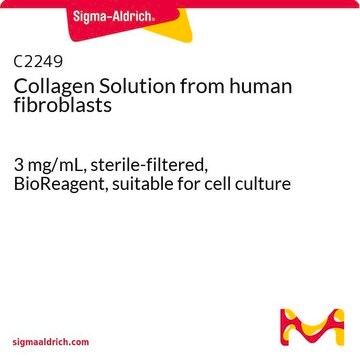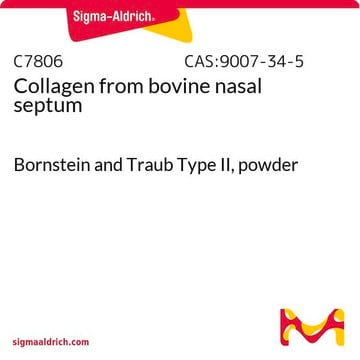C4407
Human Collagen Type III
from human placenta, powder, suitable for cell culture
About This Item
Productos recomendados
product name
Colágeno from human placenta, Bornstein and Traub Type III (Sigma Type X), powder
biological source
human placenta
Quality Level
assay
≥90% (GE)
form
powder
technique(s)
cell culture | mammalian: suitable
impurities
HIV, hepatitis B and hepatitis C, none detected
solubility
aqueous acid: soluble
UniProt accession no.
storage temp.
2-8°C
Gene Information
human ... COL3A1(1300)
¿Está buscando productos similares? Visita Guía de comparación de productos
Application
Components
Caution
Preparation Note
Analysis Note
Other Notes
Storage Class
11 - Combustible Solids
wgk_germany
WGK 1
flash_point_f
Not applicable
flash_point_c
Not applicable
ppe
Eyeshields, Gloves, type N95 (US)
Certificados de análisis (COA)
Busque Certificados de análisis (COA) introduciendo el número de lote del producto. Los números de lote se encuentran en la etiqueta del producto después de las palabras «Lot» o «Batch»
¿Ya tiene este producto?
Encuentre la documentación para los productos que ha comprado recientemente en la Biblioteca de documentos.
Los clientes también vieron
Nuestro equipo de científicos tiene experiencia en todas las áreas de investigación: Ciencias de la vida, Ciencia de los materiales, Síntesis química, Cromatografía, Analítica y muchas otras.
Póngase en contacto con el Servicio técnico









